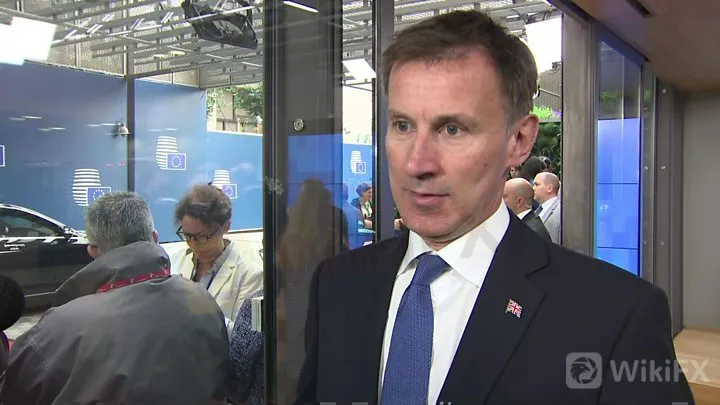简体中文
繁體中文
English
Pусский
日本語
ภาษาไทย
Tiếng Việt
Bahasa Indonesia
Español
हिन्दी
Filippiiniläinen
Français
Deutsch
Português
Türkçe
한국어
العربية
Iran nuclear deal breaches not yet significant, EU says
Abstract:Image copyrightAFPImage caption Federica Mogherini insisted the nuclear deal was "still alive"Iran's
Image copyrightAFPImage caption
Federica Mogherini insisted the nuclear deal was “still alive”
Iran's recent breaches of the 2015 nuclear deal are not significant and can be reversed, the European Union's foreign policy chief says.
“We invite Iran to reverse the steps and go back to full compliance,” Federica Mogherini said on Monday.
Iran stepped up production of enriched uranium, used to make reactor fuel but also potentially nuclear bombs, in May.
It is responding to sanctions imposed by the US since it withdrew unilaterally from the agreement.
The breaches come amid heightened tensions between Iran and the US.
There has been tension with the UK, too, following the UK seizure of an Iranian oil tanker earlier this month suspected of taking oil to Syria in breach of sanctions. Iran denies this.
The long-term nuclear deal involves Iran limiting its nuclear activities in return for the easing of economic sanctions, which have badly hurt its economy.
Is the Iran nuclear deal finally dead?
Why do the limits on uranium enrichment matter?
Iran nuclear crisis in 300 words
Iran nuclear deal: Key details
“Technically all the steps that have been taken, and that we regret have been taken, are reversible,” Ms Mogherini said, following a meeting of EU foreign ministers.
She said none of the signatories to the deal considered the breaches to be significant, and so they would not be triggering its dispute mechanism which could lead to further sanctions.
The meeting in Brussels was focused on reducing tensions with Iran and ensuring the nuclear deal remains in place.

Media playback is unsupported on your device
Media captionJeremy Hunt hopes to find way to save the Iran nuclear deal
Earlier on Monday, UK Foreign Minister Jeremy Hunt said there was a “small window” to save the deal.
“Iran is still a good year away from developing a nuclear weapon,” he said.
In a joint statement issued ahead of the meeting, Britain, France and Germany reiterated their support for it.

Media playback is unsupported on your device
Media captionInside Iran: Iranians on Trump and the nuclear deal
Why does saving the Iran nuclear deal matter?
Even if Iran does not actually build a nuclear warhead, it only has to reach the point at which it COULD produce one for its nervous neighbours to decide this is too much of a risk.
They will want their own one too - as a deterrent.
Statements from Saudi Arabia, Iran's Middle East rival, have made it clear the country would not accept a nuclear-armed Iran.
So then, as stated by diplomats in Brussels, we are into a nuclear arms race.
What does that mean in practice?
In all probability Saudi Arabia, Turkey and Egypt would all want to become nuclear weapons powers, with the potential to obliterate entire cities.
This would be in a part of the world that has seen almost continuous conflict in places for the last 71 years.
Finally, there is the risk that should Iran ever go nuclear some fear it could pass on a warhead to a non-state militia like Hezbollah.
This is why the Iran nuclear deal matters, even if you don't live anywhere near the Gulf.
Why is the deal in trouble?
In 2018, US President Donald Trump said he would unilaterally withdraw the US from the agreement which was signed under the administration of his predecessor Barack Obama.
The other parties criticised Mr Trump's decision and said they remained fully committed to the deal.

Media playback is unsupported on your device
Media captionThe BBCs Paul Adams looks at the recent developments behind the US-Iran tensions
The Mail on Sunday published a leaked memo from the UK's ambassador in Washington which said Mr Trump abandoned the nuclear deal to spite Mr Obama.
Earlier this month, the International Atomic Energy Agency confirmed that Iran had breached the deal's cap on stockpiling of low-enriched uranium.
Why do the limits on Iran's uranium enrichment matter?
Iran said it was responding to sanctions reinstated by the US after Mr Trump abandoned the deal. Last week it confirmed it will break another of the limits imposed by the deal.
Disclaimer:
The views in this article only represent the author's personal views, and do not constitute investment advice on this platform. This platform does not guarantee the accuracy, completeness and timeliness of the information in the article, and will not be liable for any loss caused by the use of or reliance on the information in the article.
WikiFX Broker
Latest News
SQUARED FINANCIAL: Your Friend or Foe?
Big News! UK 30-Year Bond Yields Soar to 25-Year High!
High-Potential Investments: Top 10 Stocks to Watch in 2025
Why Is Nvidia Making Headlines Everywhere Today?
Discover How Your Trading Personality Shapes Success
US Dollar Insights: Key FX Trends You Need to Know
FINRA Charges UBS $1.1 Million for a Decade of False Trade Confirmations
BI Apprehends Japanese Scam Leader in Manila
Bitcoin in 2025: The Opportunities and Challenges Ahead
Join the Event & Level Up Your Forex Journey
Currency Calculator







